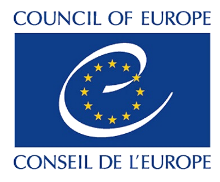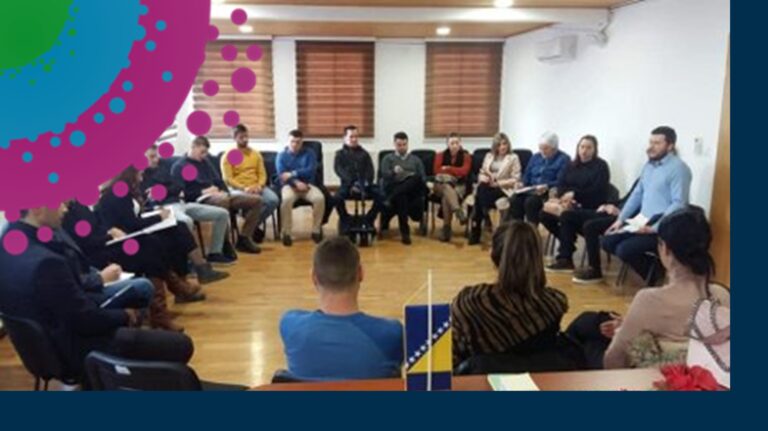Current status
Submitted
Discover more
After a contribution is submitted to BePART Forum, the initiative is marked as “Submitted”; as other partners involved in the initiative submit information from their side, the initiative is marked as “Under review” and goes through the validation process; twice a year, initiative are validated by the BePART Working Group at the Council of Europe. Successful initiatives are marked as “Validated”. Do you want to learn more – click here
Contributor(s)
First contributor: Youth Council Goražde
Summary
The Youth Strategy is an important document because it involves multisectoral participation. From local authorities to health, education, economy, safety, environment, culture, sport, every aspect of everyday participation. It involves, through consultations and assessments, all local actors and decision makers in the identification of youth priorities and in the development of an action plan and implementation of an action plan.
Administrative level
Local (Municipality of Goražde)
Year of implementation
2017-2022
Policy area(s)
- (Local) Development and Planning
- Education, culture, and sport
- Youth, Employment
- Environment
- Social security/solidarity
Sorry, no records were found. Please adjust your search criteria and try again.
Sorry, unable to load the Maps API.
Youth Council of Goražde
Civil society organisation
Contact info
/
Tipology of involvement in the initiative
- Initiating (i.e., advocating for and starting the process)
- Organising
- Participating with a direct involvement
Municipality of Goražde
Public Authorities
Contact info
Tipology of involvement in the initiative
- Participating with a direct involvement
- Initiating (i.e., advocating for and starting the process)
- Organising
- Funding
Level of Participation
- Information
- Consultation
- Dialogue
- Partnership
Discover more
By level of participation we refer to the type of involvement in the decision-making process. The levels are identified by the intensity of participation: going from “information” to “consultation” to ” dialogue” to “partnership”. Do you want to learn more – click here
Developed practice(s)
The Youth Strategy is a policy document, which is mandatory by law. Local and cantonal authorities are obliged to develop and implement such strategies.
Step(s) of the political decision-making process at which the practice was implemented
- Drafting of policy
- Decision-making
Discover more
There are six different steps of the political decision-making process: agenda setting, drafting of policy, decision-making, implementation of policy, monitoring and reformulation of policy. Each step offer opportunities for CSOs and public authorities to interact. Do you want to learn more – click here
How the initiative was implemented
Situation
The Youth Strategy is an important document because it involves multisectoral participation. From local authorities to health, education, economy, safety, environment, culture, sport, every aspect of everyday participation. It involves, through consultations and assessments, all local actors and decision makers in the identification of youth priorities and in the development of an action plan and implementation of an action plan.
Activities performed
The Municipality of Goražde conducted all the necessary processes for the development of the strategy. Including, focus groups with all stakeholders and partners.
Tools and mechanisms applied
The Youth Council was deeply involved in the decision-making process concerned, including assessment and policy drafting phases. It also supported the organization and facilitation of public consultations with youth and other stakeholders.
Goals of the civil participation initiative
At community level
To stimulate the involvement of all youth from the community in policy and decision-making processes to identify priorities and issues directly impacting young people.
From Civil society organisation’s perspective
To foster active participation in all processes regarding the development of youth policy and promote active partnerships between local community stakeholders and policy makers.
From Public Authority’s Perspective
To fulfil the legal obligation towards young people.
Results expected prior to the implementation
- Young people are involved in the development of the local youth policy.
- An action plan is developed according to the needs of young people.
Immediate results achieved after implementation
- Increased participation of young people in the development of the local youth policy.
- Increased level of partnership and understanding of the needs and problems of young people.
Long-term impact
Despite the involvement of young people in the process leading to the development of the local youth policy and action plan, the implementation of the latter is, at best, very limited. The Municipality is ultimately responsible for the implementation of the action plan, and for the relevant allocation of resources. The long-term impact depends on the effective implementation of the action plan.
Practice lessons learnt (obstacles and solutions)
| Agency (i.e., political conditions/power structures) | Obstacles | Unstable political situation/constant changes of government. |
| Solutions | Promotion of youth participation in elections and dialog with political parties. | |
| Legislative | Obstacles |
|
| Solutions |
|
|
| Administrative | Obstacles | Lack of capacity. |
| Solutions | Trainings for civil servants/officers – Youth workers. | |
| Socio-cultural | Obstacles | Lack of interest of youth in citizen participation and decision-making. |
| Solutions | Capacity building and training for Youth CSOs. | |
| Economic | Obstacles | Lack of resources for implementation of civil participation initiatives. |
| Solutions | Local budget allocation of funds and resources and applying for international funds. | |
| Human capital | Obstacles | Migration of young people in search for jobs. |
| Solutions | • Youth employment programs. | |
| Other | Obstacles | / |
| Solutions | / |
Further information
/
Self-assessment
The self-assessment presents the opinion of the contributor about on what extent the following principles for Civil Participation have been reflected in the implementation of the initiative/practice/case-study, ranging from 1 (min) to 4 (max) (N/A: not applicable, do not know)
| Openness | 2 |
| Explanation | / |
| Trust | 2 |
| Explanation | / |
| Independence | 2 |
| Explanation | / |
| Participation | 2 |
| Explanation | / |
| Transparency | 2 |
| Explanation | / |
| Accessibility | 2 |
| Explanation | / |
| Non-discrimination | 2 |
| Explanation | / |
| Inclusiveness | 2 |
| Explanation | / |
| Accountability | 2 |
| Explanation | / |
Thank you for wanting to share your experience on the BePART platform!
Learn more about the submission process, or just fill the form below.



